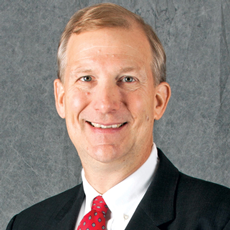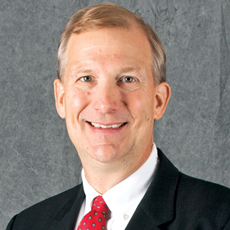

In much of public policy discourse today, false dichotomies abound. One is either for or against, in the right or in the wrong. No middle ground.
Not so for Sabra Health Care REIT top executive Rick Matros. He at least sees glimmers of “grays” while others may see blacks and whites.
And while the coronavirus undeniably has ravaged the healthcare sector and much of the U.S. economy, Matros also sees bright spots here and there.
“I think ‘cautious optimism’ is fair only because of how well operators have adjusted, given all the barriers they’ve had,” Matros told me Thursday. “Once those barriers are removed, like testing … I think cautious optimism is a fair way to put it.”
It sure beats a typical skeptical outlook many operators have been conditioned to have.
Get Matros going, in fact, and he winds up finding more silver linings than even he might expect.
Other reasons for optimism? Geographic areas that have had big spikes in the greater community lately haven’t translated into major outbreaks in facilities. Cases have been more easily isolated. “That’s one thing that’s been heartening,” he said.
The other?
“The other big positive is CMS has been fantastic,” he offered. Between it and the CARES Act “and all the assistance nursing homes have been given lately … they’ve basically stepped up. [CMS Administrator] Seema Verma has been great.”
Numerous sources have noted that Verma has been in frequent contact with Mark Parkinson, the president and CEO of the American Health Care Association.
“They’ve really worked well together,” said Matros, repeating an observation we’ve heard more than once. “There was good dialogue even before the pandemic.”
They had to have had it. As the saying goes, you can’t really build relationships during a crisis. The making-nice behind the scenes dates back several years actually, certainly into the build-up to the Patient Driven Payment Model (PDPM).
“You want to give a lot of credit to Seema Verma, but a lot of collaboration on reimbursement system proceed her,” Matros noted, again turning to Parkinson’s outsized effects on events. “You have to give credit to Mark Parkinson because we’ve never had an executive like him before, ever. He’s just really, really been proactive, creating a relationship with a dialogue.”
One theory goes that CMS partly softened after its disastrous encounter with RUGS-IV, which resulted in the federal government having to “claw back” billions of dollars from providers after just six months. And even then outcomes still didn’t move the needle enough.
At least PDPM was in play long enough before the pandemic to start changing caregiving dynamics. True, group and concurrent therapy — planned to be bright spots in providers’ PDPM machinery — have been put on hold during the public health emergency. But they will eventually come back, as will more talk about special needs plans and other alternative payment models that were starting to draw broader interest.
Overall, providers should be grateful for having had a sip of life with PDPM. It is, after all, one of CMS’ bigger successes. Matros agrees but doesn’t wear rose-colored glasses when giving grades. He would bestow high marks for CMS’ prep work on PDPM, rating it far better than RUGs for pandemic conditions. He also pointed to other actions, such as CMS’s recent withdrawal of its controversial proposed Medicaid Fiscal Accountability Rule (MFAR).
“You hardly give anybody an ‘A’ because there’s always room for improvement,” he explained. “On a scale of 1 to 10, I give 9’s. I’ll give CMS a B-plus on this.”
Both sides have worked for it. About six weeks ago, Verma mentioned into an open microphone that the industry has been a “good partner.” That might be tough to swallow for some who have felt the sting of added CMS regulatory threats lately. And many providers hope that CMS will recognize the gravitas of the situation and focus collaboratively on, say, infection control practices rather than writing up F-tags for dustballs in the corners.
But … the CMS administrator had paid a pretty broad compliment to providers.
“That hasn’t happened historically,” Matros pointed out, “so, yeah, I think they’ve been really great.”
Now if only that sentiment can hold for about, oh, five or 10 years. That’s one extreme providers might be able to live with.
Follow Executive Editor James M. Berklan @JimBerklan.




